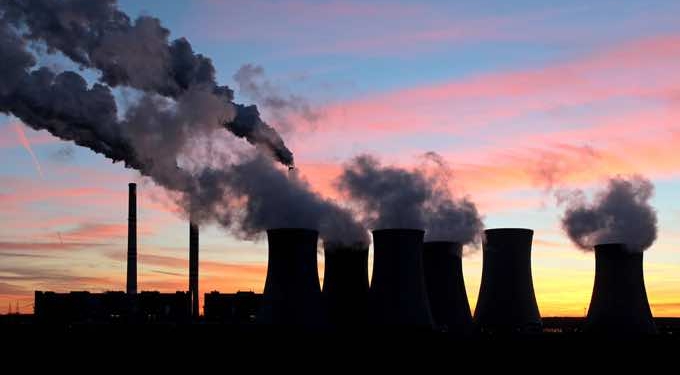
By Michael Tobias
As nations worldwide channel trillions of US dollars into varied recovery strategies in response to the coronavirus pandemic, it is vital to aim for a clean-energy future globally. There is a growing realization that fossil fuels are a waste of money and that there is no place for coal in any country’s COVID-19 recovery plans.
This is the crux of a strong message from the United Nations Secretary-General, António Guterres, who addressed the first-ever International Energy Agency (IEA) Clean Energy Transitions Summit held virtually on 9 July 2020.
He told participants that there was a choice for the world to return to the way things were before the outbreak of COVID-19 or to invest in recovery plans that will lead to a better, much more sustainable future. More specifically, the options he cited were to:
- Continue to invest in fossil fuels with their volatile markets and emissions that inevitably lead to deadly air pollution.
- Invest in reliable, clean renewable energy that is economically smart.
He said he was encouraged that there were countries that had made the transition from fossil fuels, the core of the COVID-19 response and recovery plans, but drew attention to the fact that many had not “got the message” and were jump-starting coal-fired power plants and propping up oil and gas companies.
The clean energy route was important for three vital reasons he said:
- Health
- Science
- Economics
Health: More than 9-million people die every year as a result of outdoor air pollution that also shortens expectant lifespans by about three years.
Science: Climate change continues to take its toll and unless we limit temperature increase disasters will become more and more serious. Guterres states that there must be 45% cuts from 2010 carbon emission levels by 2030 and net-zero emissions by 2050. Nevertheless, he believes it is still achievable.
Science: This is the strongest argument of all, particularly for people who think in dollars. As Guterres says, solar energy is now cheaper per kilowatt-hour than coal in most countries. Additionally, fossil fuels are now considered risky business, and their demand is decreasing. Even commercial investment houses want companies to change their business models.
With a clean energy route in mind, he called for countries throughout the world to rescue, rebuild, and reset their economies following the COVID-19 disaster.
His six climate-positive actions are to:
- Make our societies more resilient.
- Generate sustainable growth and “green” jobs, and consider that renewable energy can offer three times as many jobs than the fossil fuel industry.
- Stop wasting money on fossil fuels and place a more meaningful price on carbon.
- Offer support to sectors like aviation, shipping, and industry that are aligned with the Paris Agreement goals.
- Take the risks of climate change into account when making decisions of all kinds.
- Take social and environmental impacts into account when making financial decisions.
Ultimately, he said, renewable energy is the one and only source of energy that will grow in 2020. So no more coal! Rather, we need to embrace the vast opportunities offered by a clean-energy future.
2020’s Largest Global Conference on Climate & Energy
Attended online by government and non-government participants from all over the world, the conference, including Guterres’ special address, was live-streamed across all the IEA digital platforms, with archived videos posted on the IEA website after the virtual event for those who missed it.
The IEA Clean Energy Transitions Summit was convened to discuss how to put the world on course for a resilient and sustainable recovery from the damage caused by harmful carbon dioxide emissions. Discussion focused on reducing global emissions, steps to make energy systems more resilient, measures to boost world economies, and ways to create jobs, all of which have been affected by the COVID-19 pandemic.

Dubbed as the year’s largest and highest-profile global gathering on climate and energy, the virtual conference was attended by government ministers that represented an estimated 80% of the global economy that contributes to energy consumption and carbon emissions including the United States Secretary of Energy, Mr. Dan Brouillette, the director of National Energy Administration in China, Zhang Jianhua, the Japanese Minister of Economy, Trade and Industry, Mr. Kajiyama Hiroshi, and a current Minister of State, Mr. Raj Kumar Singh from India.
Other high-level participants included the United Kingdom Secretary of State, Mr. Alok Sharma, who is also the president of the upcoming COP26, the President of the World Economic Forum, Mr. Børge Brende, the President of the Asian Development Bank, Mr. Masatsugu Asakawa, and, of course, António Guterres, UN Secretary-General.
The virtual meeting was chaired by Dr. Fatih Birol, Executive Director of the IEA.
After the opening session that featured António Guterres’ special address, there were three parallel, high-level panel discussions. These were:
- Panel 1: Accelerating Clean Energy Technology Innovation, which was co-chaired by Norway’s Minister of Petroleum and Energy, Ms. Tina Bur, and Chile’s Minister of Energy, Mr. Juan Carlas Jobet. Participants looked at the IEA’s five key principles of innovation and discussed how to adjust to various emerging technologies including carbon capture, utilization and storage (CCUS), bioenergy, batteries, and hydrogen.
- Panel 2: An Inclusive and Equitable Recovery, which was co-chaired by The Honourable Seamus O’Regan, Canada’s Minister of Natural Resources and Mr. Aziz Rabbah, Morocco’s Minister of Energy, Mines and Environment. Participants considered the vital need to put people at the center of recovery plans. The emphasis was that it is vital to protect workers and to ensure that diverse talents, perspectives, and backgrounds are utilized, and new skills developed to help develop sustainable energy systems that are also resilient. The importance of advancing inclusive growth and tracking progress was also discussed.
- Panel 3: Electricity Security and Sustainability, which was co-chaired by Mr. Kadri Simson, the European Commissioner for Energy, European Commission, and Mr. Sontirat Sontijirawong, the Minister of Energy in Thailand. This panel discussion acknowledged the fact that electricity has been indispensable for citizens worldwide during the COVID-19 crisis. It also discussed the transition to climate-neutral economies and noted the vital role of electricity in transitions to clean energy. There was a feeling that globally we have a historic opportunity to improve and modernize the reliability, sustainability, and security of electricity systems using the various renewable options available to us.
But it doesn’t end here and it was agreed that the participants will reconvene in a year’s time, in mid-2021.
In the meantime, we all need to remain cognizant of what is required to keep advancing clean energy transitions, including those that improve air quality in buildings and keep occupants free from the unnecessary risks of COVID-19. It is an ongoing process that requires focus and action.
If we work together globally, we will beat COVID-19, rescue global economies, and start to reverse the damages of climate change.
About the author:

Michael Tobias is the founder and principal of Nearby Engineers and New York Engineers, an Inc 5000 Fastest Growing Company in America. He leads a team of more than 30 mechanical, electrical, plumbing, and fire protection engineers from the company headquarters in New York City, and has led numerous projects in New York, New Jersey, Chicago, Pennsylvania, Connecticut, Florida, Maryland, and California, as well as Singapore and Malaysia. He specializes in sustainable building technology and is a member of the U.S. Green Building Council.















